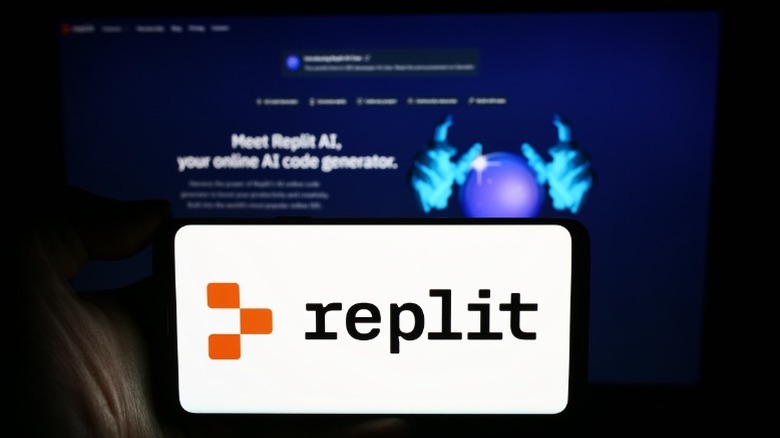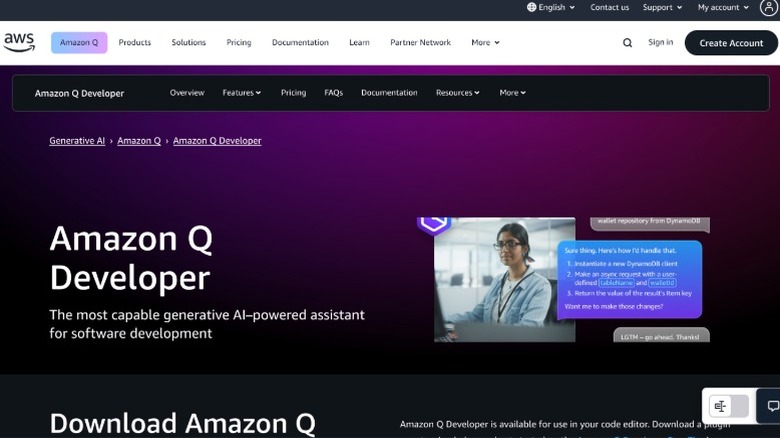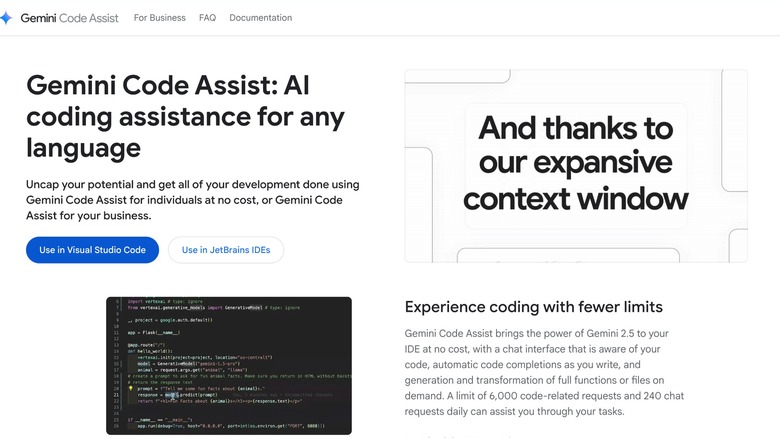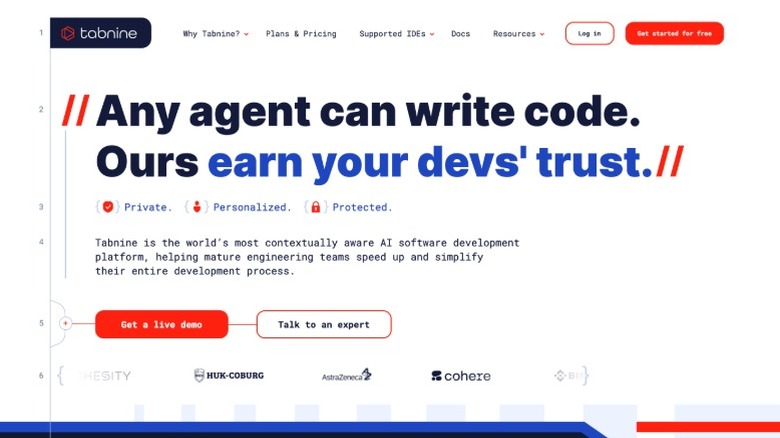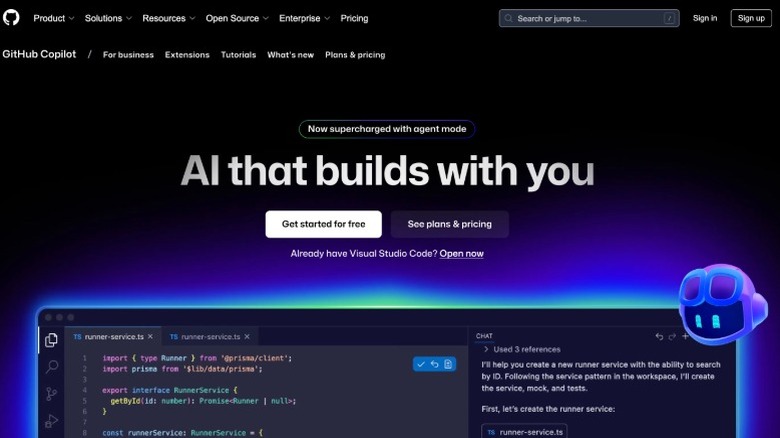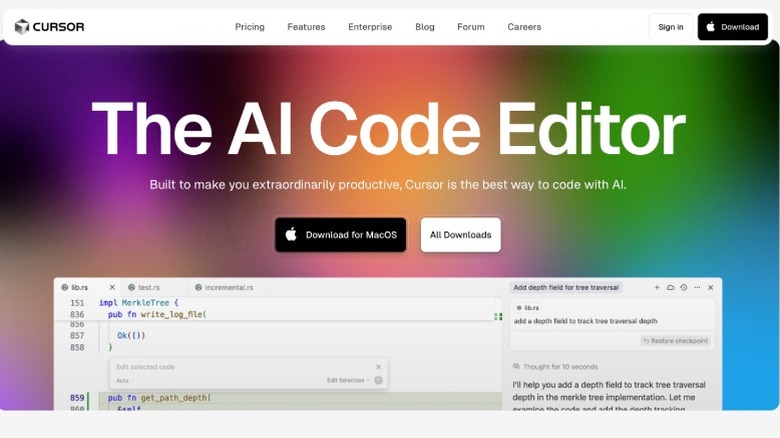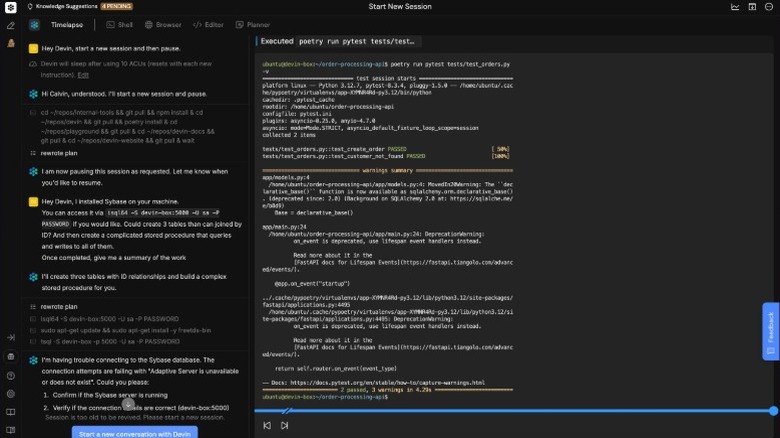9 Best AI Tools For Coding, Ranked
If you're on the software developer side of the internet, you've probably heard the term "vibe coding" recently. Andrej Karpathy coined this phrase to reference a style of coding where artificial intelligence does the bulk of the task. You simply feed in prompts to your code assistant and allow it to write, test, and even review the code. You stay in control, but without doing the manual labour.
AI tools taking over even the software development sounds a little too futuristic, but the truth is, so much in tech has changed over the past few years. Now, you wouldn't want to rely on "vibe coding" to produce reliable results for those complicated projects with higher stakes, however, code assistants have actually become part and parcel of the daily workflow of many developers. A survey by GitHub reports that 92% of developers based in the US already use code assistant tools, with 70% affirming that it improves their work efficiency.
So AI isn't stealing your job just yet, but it is improving job efficiency and satisfaction. It takes on the burden of those repetitive tasks and errors that take time to fix. In some cases, it even allows you to input custom rules, which ensures that the output is in line with your individual or company's vision. With that said, here are nine of the best AI tools for coding, ranked.
Replit
Replit is a browser-based integrated development environment specifically developed to help software professionals simplify and fast-track app development. Unlike your regular IDEs, it's embedded with AI-powered features that can help you code more easily. SQL, JavaScript, and C++ are all compatible with this software.
The idea behind this software is to assist an agent. For instance, as you code, it can correct errors and predict lines of code. It can also produce lines of code on its own when you instruct it to. In addition, Replit provides resources for easy, real-time collaboration, letting you onboard members of your team to a project remotely. With the built-in chat feature, sharing ideas, communicating, and providing feedback becomes even easier.
Overall, Replit is great not only for software developers but also for students and their educators. The main problem with this software is that the assistance and predictions provided are not always precise or consistent, and while it can be of major assistance to those who are new to coding, it's not the best tool for more complicated tasks.
Amazon CodeWhisperer
Until about a year ago, Amazon's AI-powered coding assistant was known as Amazon CodeWhisperer. In April 2024, the company moved all its features to a new software — Amazon Q Developer — allowing old users to migrate to the new and improved platform. This software has been trained on billions of lines of code, with language support ranging from TypeScript to Java, Ruby, and C#.
Amazon Q Developer competes with the likes of Copilot, providing code reviews, spotting errors, and giving suggestions within your IDE. However, one of its biggest selling points is its inline chat and context control. It also offers code security scanning, which helps you spot any loopholes and prevent external threats.
Q Developer is a great coding companion, and it works best with the Amazon Web Services ecosystem. So if you're already in that space, the platform has niche solutions that are perfectly tailored for your needs, even though it might not be as flexible as competitors such as Copilot. Amazon Q Developer offers both a free version and a paid one at $19 per month.
Windsurf
Windsurf is a user-friendly tool that features a comprehensive integrated development environment embedded with AI-powered features. Powered by Codeium, this code editor is built on VS Code and uses its language models to provide real-time code analysis and insights.
Windsurf is built on Claude 3.5 Sonnet and offers search features across more than seventy programming languages. Users get AI-powered features like inline code editing and auto-completions. However, the Cascade Flow system stands out among its capabilities. It combines multi-file and multi-edit capabilities with deep contextual awareness that ensures a seamless, collaborative flow when coding.
As an AI tool, Windsurf's biggest pros are its comprehension of large and complex codebases, as well as beginner-friendliness. However, don't expect it to be as responsive when dealing with large-scale tasks, and bear in mind that code generation is not very creative. There's no installation prerequisite to use Windsurf, as it runs independently in the browser and supports workflows familiar to users of platforms like VS Code, JetBrains, and Sublime Text.
Gemini Code Assist
Google's introduction of an AI chatbot started out pretty rough. Gemini, which began as Bard, had many users and observers underwhelmed, especially when compared to ChatGPT, which it aimed to rival. Thankfully, much has changed for Gemini in recent times. It has evolved and can undertake some pretty impressive tasks to users' satisfaction.
Code assistance was officially released for this platform in March 2025. As its name suggests, the code assist feature functions just like your personal wingman. It helps you code, explain, document, and debug. This software functions with IDEs like JetBrains and VS Code and also has GitHub integration.
Gemini is also a great tool for reviewing and refining your work. When you create a pull request, it generates a summary comment that includes a brief overview of your code. It then provides you with information on any discovered problems, along with their severity and suggestions on how to rectify them. On top of that, you can customize your code assistant by providing guidelines for it to follow. Apart from the foregoing, Gemini also answers coding-related questions, which is a pretty helpful feature for beginners.
Tabnine
Tabnine has become a familiar name among software developers. The company introduced its AI code assistant back in 2018, establishing itself as a pioneer in code-assistive technology. Tabnine works with various IDEs and allows you to apply custom rules, industry best practices, and quality standards, so you can achieve higher-quality code and reach your set goals.
Among its major principles, Tabnine upholds security and privacy, which is why it guarantees its users zero data retention and end-to-end encryption, while ensuring compliance with international standards for data privacy. Moreover, it offers a unique model called Tabnine Protected 2, where you also get real-time reviews of any AI-generated code to prevent any breach of intellectual property rights. Any code that matches publicly available code will be flagged and referenced.
Also, one of Tabnine's strengths is context awareness. It takes relevant information from the IDE, such as comments, open files, and libraries, and then applies it to its code and suggestions. It's like having another member of your team — one that's fully onboarded and understands how things work.
ChatGPT
ChatGPT is unarguably more famous than any other AI tool today. With nearly five billion monthly visits, it has penetrated virtually every industry, thanks to its ability to carry out a wide range of autonomous tasks effectively. Thus, although this software isn't specifically built for coding, that's one of its many capabilities.
ChatGPT can handle code generation pretty well. However, that's not to suggest that you can rely on it to build an application independently. Instead, you can use it as an assistant. If you have a large project, for instance, instead of feeding in requests at once into the software, consider creating smaller units and then asking it to generate code or reviews for each section. You want to ensure that your requests are precise, based on the kind of result you're looking for.
On higher paid versions, like ChatGPT Pro, ChatGPT Teams, and ChatGPT Enterprise, you get access to Codex, a cloud-based software engineering agent powered by Codex-1. Apart from answering coding-related questions, Codex also identifies and removes bugs to refine your output. This tool is easily accessible in the ChatGPT sidebar.
GitHub Copilot
Not many AI coding assistants can match up to GitHub Copilot. This is why it's quickly become one of the most famous tools among programmers. The collaborative efforts of OpenAI and GitHub brought this platform to life, using source code that's publicly available. GitHub Copilot is built to help you generate code and reduce errors when coding.
There are several features offered on this platform. One of these is code completion. Copilot offers suggestions upon request, giving you different options to implement, which you may accept or reject. There's also a Copilot chat, which is actually embedded into VS Code, where you pose questions to it or give suggestions. Apart from VS Code, GitHub Copilot also supports Visual Studio and JetBrains IDEs.
When it comes to generating code, Copilot is one of the best options you'll find. Compared to other tools, its outputs are quite precise and generally require less supervision and corrections. Affordability is also one of its perks. There's a free version that provides 2,000 completions per month and a pro version, where completions are unlimited, alongside other added features, for $10 monthly.
Cursor
Now in its third year, Cursor has become one of the most successful AI start-ups ever. This software was developed by Anysphere about two years ago and has recorded some impressive figures ever since. Cursor is essentially an IDE with a bunch of AI-powered features embedded in it. The aim of this program is to facilitate faster and more efficient software development, and because it's built on top of VS Code, it's a familiar layout for many developers.
One of Cursor's main AI-powered functionalities is that it helps you complete your code through intelligent step-by-step suggestions that help you save time. It also provides a composer mode, where you can ask the editor to make changes or rewrite various parts of the code. Moreover, Cursor can even carry out more complicated tasks in agent mode, where it analyzes the entire project, determining which files to create and update.
This software comes with a chatbot, which you can communicate with and ask code-related questions or questions pertaining to your project. The best part is that it doesn't just produce generic answers, you can rely on it to fully grasp the nature of your project and apply changes directly as needed.
Devin
Devin has become a pretty notable software in a relatively short time. It was first introduced in March 2024, but access was previously limited until it was made publicly available recently. This AI software was developed by Cognition, and it does a good job of getting rid of errors and improving the quality of your code.
What places this software above competitors is its all-around features. It comes with a browser interface, a remote server, a chat interface, a VS Code editing interface, and a planner. Devin's capabilities are quite impressive. It writes, creates, and debugs code, but beyond that, it can run end-to-end tests to confirm that the code actually works. Also noteworthy is that this software is integrated with both GitHub and Slack, which means it can be accessed directly by a team.
Unlike most tools on this list, Devin can code and debug autonomously, requiring minimal oversight. It has proven capable of undertaking even real jobs, and this ability to do so independently puts it ahead of many other options. However, at $500 a month, Devin is also a significantly more expensive investment than other code assistants.
Methodology
To select and rank these tools, we examined the range of features they provide, as well as those that they lack, assessing what would be most beneficial and helpful for developers at various levels. In addition, we relied on ratings and reviews from professionals and firsthand users to assess how well they executed their claims in the real world.

